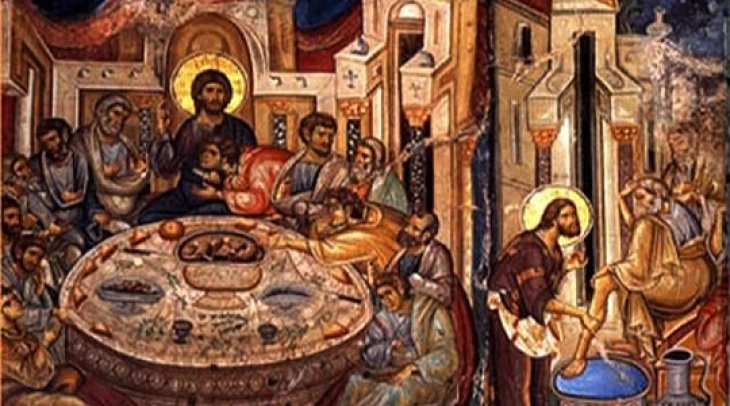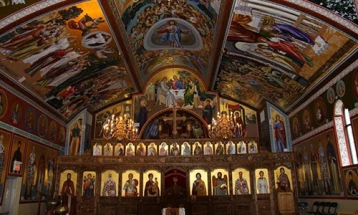
22 June 2024 (MIA)
Macedonian Orthodox Church Calendar
St. Cyril, Archbishop of Alexandria
He was of noble birth and a close kinsman of Theophilus, Patriarch of Alexandria, after whose death he was chosen as Patriarch. He fought three fierce battles in the course of his life: against the Novatianist heretics, against Nestorius and against the Jews of Alexandria. The Novatianists began in Rome, and were so called after their leader, the heretic priest Novatian. They were filled with pride at their virtues, went about dressed in white, banned second marriages and declared that one must not pray for those who had committed mortal sin nor receive back into the Church those who had once fallen away, however deeply they might repent. Cyril overcame them and drove them out of Alexandria, together with their bishop. The battle with the Jews was harder and bloodier. The Jews had been in the ascendant in Alexandria right from the time that Alexander the Great founded the city. After a long and difficult struggle, Cyril succeeded in inducing the Emperor to drive the Jews out of Alexandria. His battle, however, against Nestorius, Patriarch of Constantinople, was resolved at the Third Ecumenical Council in Ephesus. Cyril himself presided at this Council, and also represented Pope Celestine of Rome at his request, he being prevented by old age from attending the Council. Nestorius was condemned, anathematised and exiled by the Emperor to the eastern borders of the Empire, where he died. After the end of these battles, Cyril lived in peace and guided Christ’s flock with zeal. He went to the Lord in the year 444. It is said that he composed the hymn: `Hail, Mother of God and Virgin.’
Catholic Calendar
St. Thomas More
His belief that no lay ruler has jurisdiction over the Church of Christ cost Thomas More his life. Beheaded on Tower Hill, London, July 6, 1535, he steadfastly refused to approve Henry VIII’s divorce and remarriage and establishment of the Church of England. Described as “a man for all seasons,” More was a literary scholar, eminent lawyer, gentleman, father of four children and chancellor of England. An intensely spiritual man, he would not support the king’s divorce from Catherine of Aragon in order to marry Anne Boleyn. Nor would he acknowledge Henry as supreme head of the Church in England, breaking with Rome and denying the pope as head. More was committed to the Tower of London to await trial for treason: not swearing to the Act of Succession and the Oath of Supremacy. Upon conviction, More declared he had all the councils of Christendom and not just the council of one realm to support him in the decision of his conscience.







